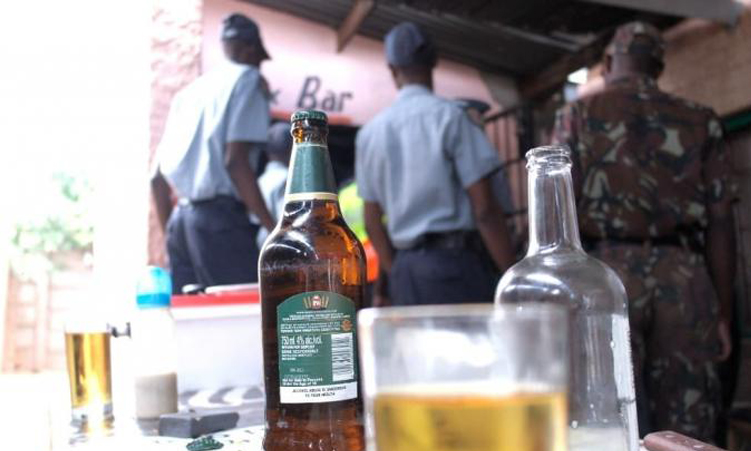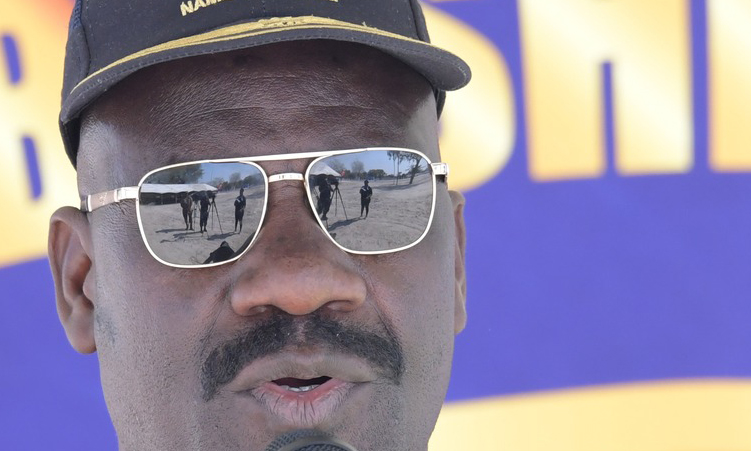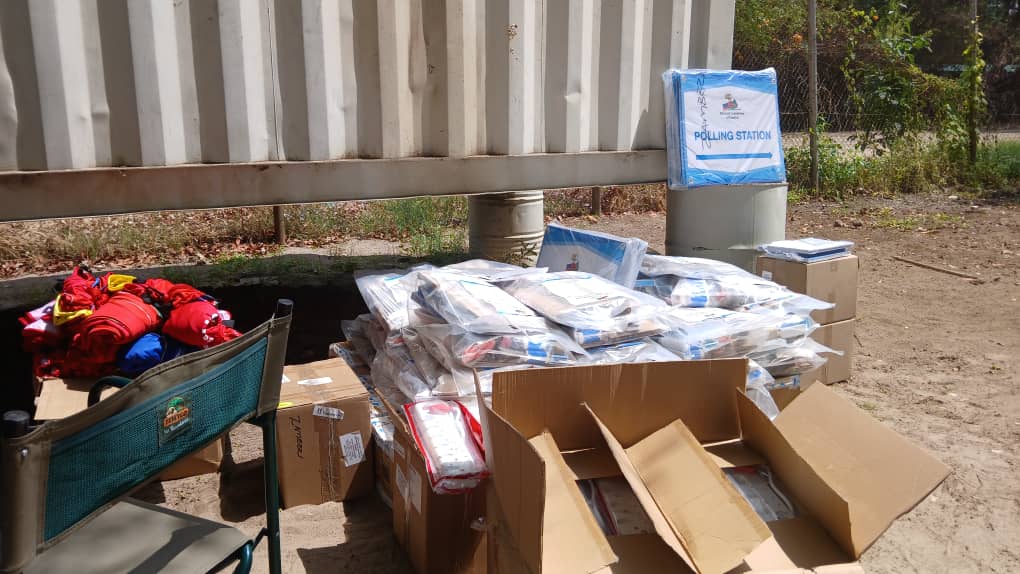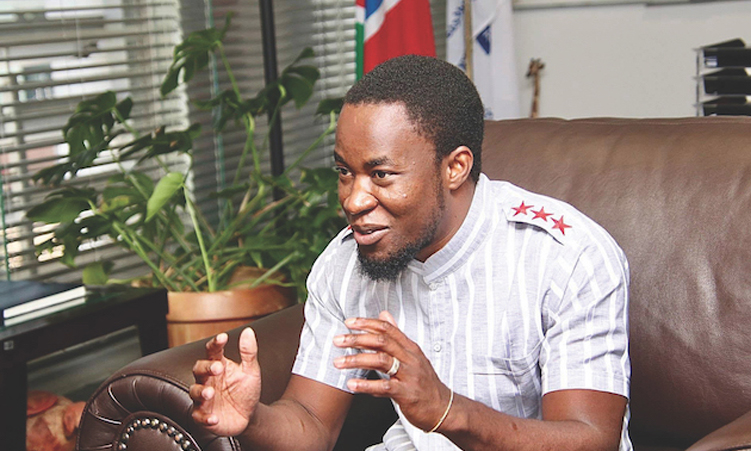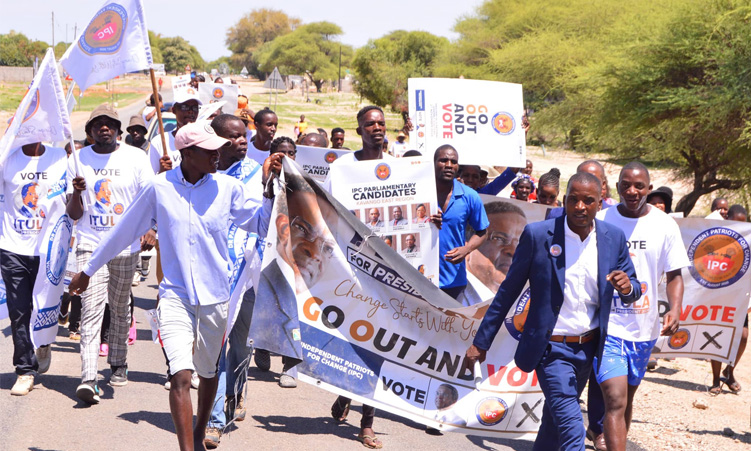… chief Shikongo headed to Kavango for patrols
The Namibian Police will be launching a blitz on shebeen and liquor outlets selling alcohol to schoolchildren, allowing them to hang out at their bars.
This comes after a video of pupils in the Kavango East region was released on Tuesday, showing a group of pupils drinking alcohol.
The widely shared video showed children as young as nine years old dressed in school uniforms drinking at a cuca shop at Rundu.
Police inspector general Joseph Shikongo yesterday said he would be visiting the region to crack down on shebeen owners.
“I will be in the Kavango region next week for an operation around that area, and it will focus on that. I will be conducting meetings with community members and the youth to address those issues, among others,” he said.
Shikongo said the police will fine shebeen owners allowing minors to drink at their establishments.
“Shebeen owners need to be fined for allowing these pupils to drink alcohol at their premises,” he said.
The police chief said pupils seen at bars will also be punished.
“We will have to talk to the parents in the presence of pupils so that we can see if there is a specific punishment for them,” he said.
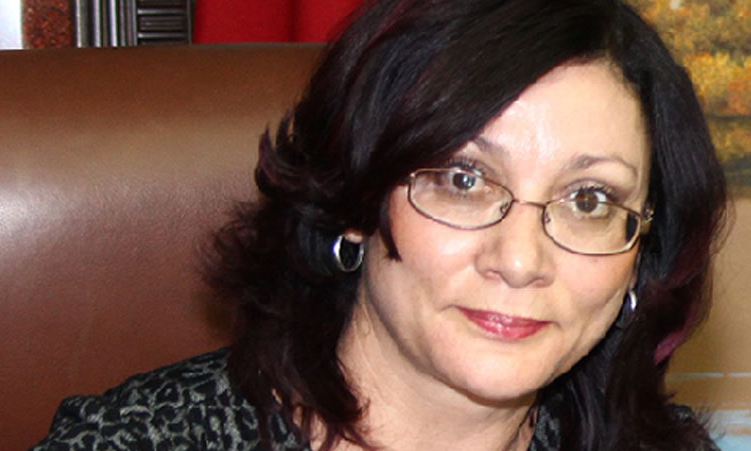
SCHOOL CAMPAIGNS
To address the issue, Shikongo said the police are conducting school campaigns.
“… which allows us to go to schools and establishments and talk to children. The focus is to make sure we move our pupils from drinking places,” he said.
He said the police want to encourage young people to take responsibility for what they do with their time, and also want to meet with bar owners to discuss the matter.
The Ministry of Education, Arts and Culture learned about the video through concerned parents at the National Organisation of Parents in Education, executive director Sanet Steenkamp yesterday told The Namibian.
“The ministry is absolutely against the fact that shebeen or bar owners, or any adult or even other peers, sell alcohol to children. Underage drinking is illegal.
“Why is it tolerated in communities? Why are children allowed to frequent bars? And why are they served alcohol? These are pertinent social issues we need to address in our communities,” she said.
“We need compliance and much better sensitisation of shebeen and bar owners.”
PREVALENT
Research on underage drinking has in the past yielded concerning results.
“The statistics are alarming. They show that Namibian young people regularly engage in underage drinking,” Steenkamp said.
This has prompted the ministry to introduce life skills as a subject, which addresses substance abuse, among other topics.
“We have made concerted efforts and great strides in training two community police members from each region for our ‘Keep Me Safe’ campaign against alcohol and substance abuse, violence and sexual violence,” she said.
The ministry’s ‘Namibia Safe Schools’ framework also addresses the issue, she said.
TARGETED INTERVENTION
“In areas where underage drinking is becoming a pertinent issue, we need to have targeted interventions.
“In this particular case, we have liaised with the regional director, who took it up further with the inspector,” Steenkamp said.
“We will start off with a sensitisation meeting with parents and pupils at schools before we engage with our ‘Keep Me Safe’ campaign.” Steenkamp called on police to enforce the laws against underage drinking.
“The issue requires collaborative efforts from parents, school boards, other community members, business owners as well as school management and pupils themselves – and of course, the Namibian Police,” she said.
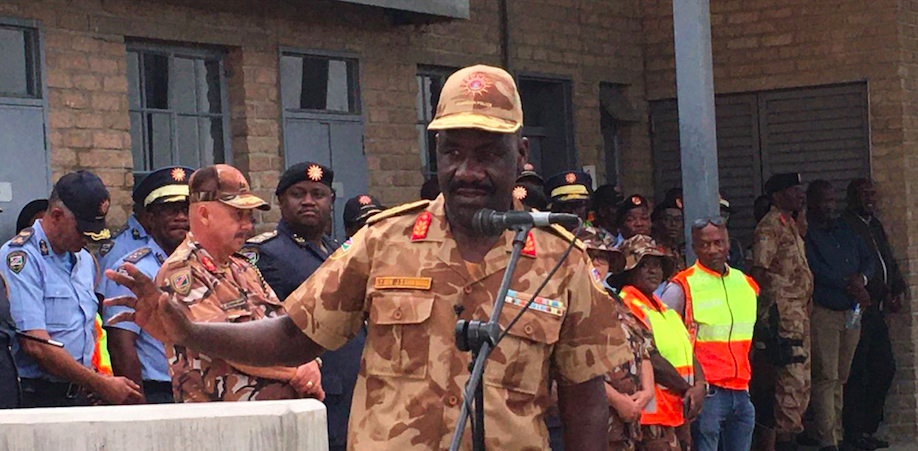
PAST INCIDENTS
Kavango East education director Christine Musore this week said there were cases in the past where pupils were found with alcohol at schools.
“… they were punished and councilling was done. We caution our pupils to abstain from this kind of behaviour. We usually do not punish them if they are outside the school premises, but if they are at school, we will definitely punish them,” she said.
Musora said the public should report cases of underage drinking.
“It is a cross-curriculum issue we are discussing and the public sees them but does not inform us. This case was actually picked up on social media, and we have instructed the inspector to look into it. We will give you the final report once it is ready,” she said.
ADDICTION
Healthcare professional and clinical psychologist Iani de Kock warns against the effects of underage drinking.
“The younger you are when you start using any substance, including alcohol, the bigger the likelihood of addiction issues as an adult,” she says.
“The adolescent brain undergoes a fascinating period of growth from about the age of 11 to 25, mass producing connections,” she says.
“Anything you do during this period gets hardwired into your brain, meaning you are much more likely to continue doing it,” De Kock says.
“If you are abusing substances and alcohol during this period, this increases the likelihood of problematic use as an adult.”
Alcohol in particular inhibits the frontal cortex, lowering inhibitions and the will to say no, she says.
De Kock also warns against the negative effects on children’s future prospects.
“If you are spotted partaking in illegal activities such as drinking alcohol while wearing your school uniform, you will very likely be kicked out of school.”
Other schools will be less likely to accept students who have been expelled because of underage drinking, De Kock says.
“Your long-term future will not look as bright as that of kids who don’t hang out drinking in shebeens in their uniforms,” she says.
Stay informed with The Namibian – your source for credible journalism. Get in-depth reporting and opinions for
only N$85 a month. Invest in journalism, invest in democracy –
Subscribe Now!


